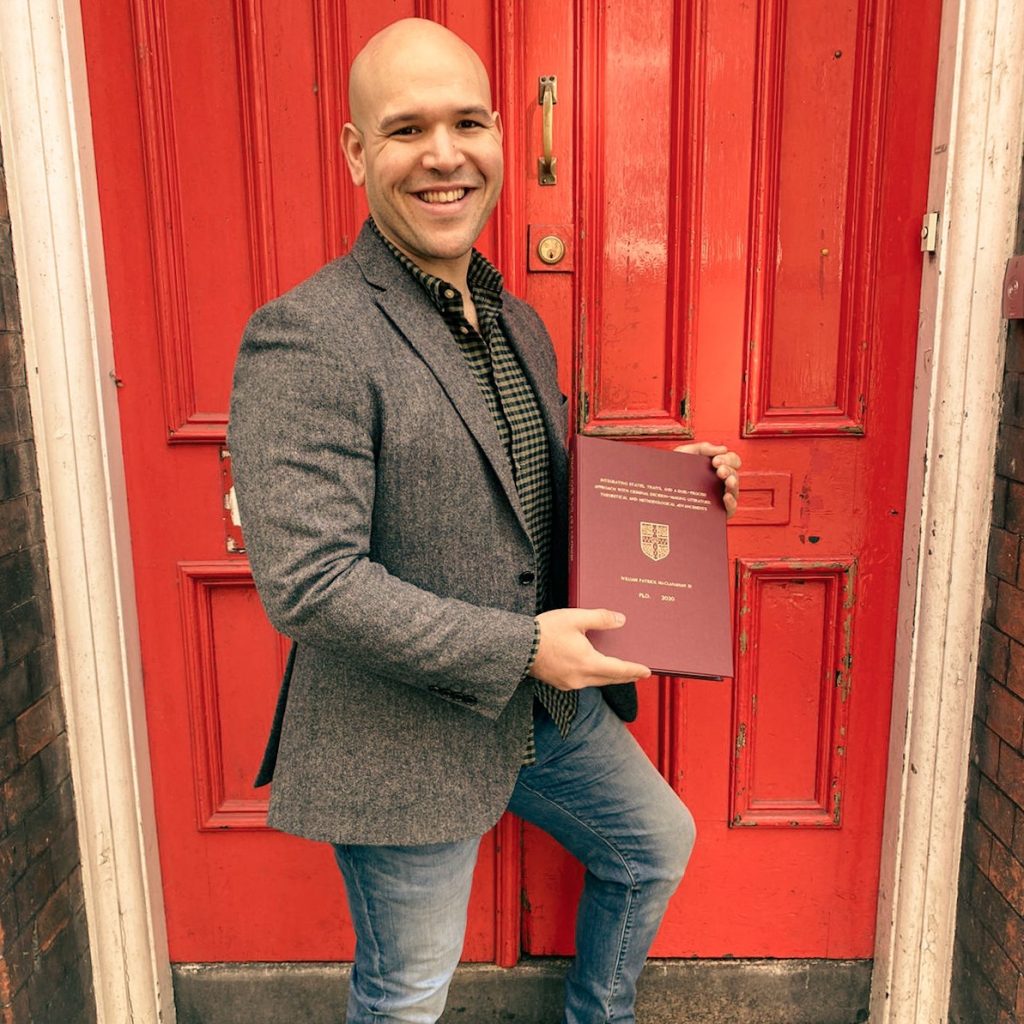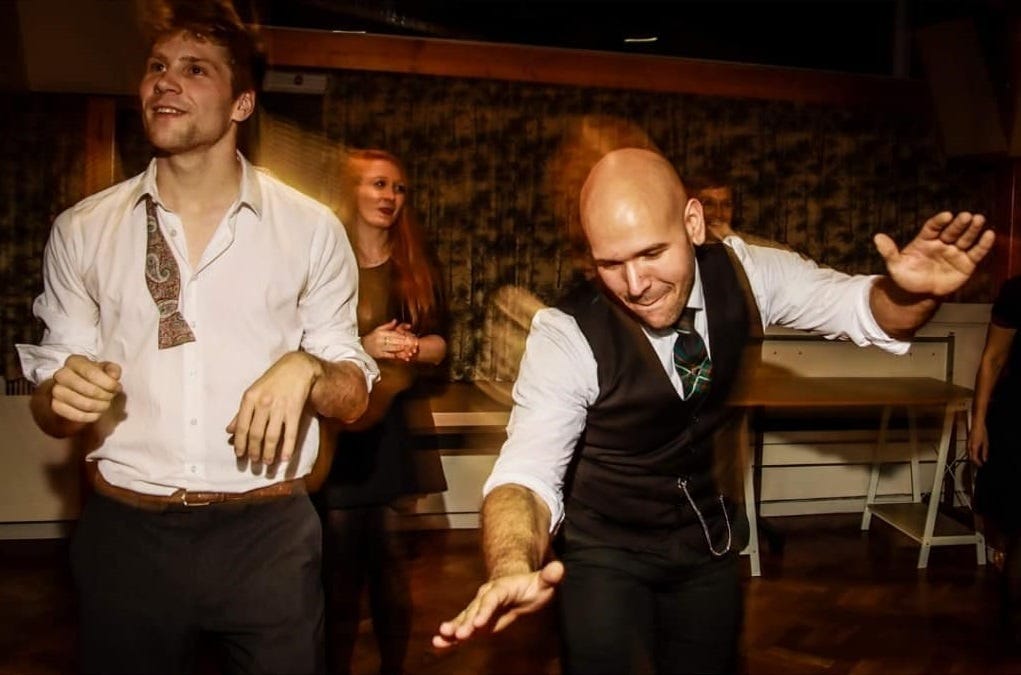‘I try to understand what type of person in what type of situation is likely to commit a crime’
Dr William Patrick McClanahan, a recent graduate from Clare Hall specialising in Psychology and Criminal Justice, describes his research, experiences at the College, and goals for the future

I’m from a small town in the Appalachian Mountains in Virginia, USA.
It’s the kind of town where you cannot go to the store without seeing someone you know. I did my undergraduate degree at Roanoke College in Virginia and double-majored in Psychology and Criminal Justice. I anticipated becoming a juvenile probation officer, but decided it was not what I wanted and decided to give myself some time to think about things. I took a year to work part-time and travel. During this, I realised I wanted to go back to school and continue research. I had been bitten by the travel bug, so I wanted to attend an international school if possible. I was fortunate enough to gain a place here and moved my life in three suitcases to Cambridge. I studied Psychology: I just recently completed my PhD and did my MPhil here before that. So, I have been in Cambridge and a member of Clare Hall since October 2016.
I research criminal decision-making.
Specifically, I try to understand what type of person in what type of situation is likely to commit a crime. One of the most fascinating things about my research are the methods I use. Typically researchers ask participants to imagine a hypothetical scenario involving a criminal element and then ask them what they would do. Thinking about a hypothetical scenario is very different from experiencing it in real life. So, in my research I use virtual reality to immerse people into these situations. It is like a ‘choose your own adventure’ book but you are in 360-degree VR. Excluding the pandemic, something we are all suffering from, one of the most challenging things about my research is ethical approval. As I’m sure you can imagine, not too many review boards are thrilled about the idea of someone committing a crime, in virtual reality or not.

Clare Hall being a smaller college means that you feel like a member of a community rather than a student at university.
No matter what you might need, whether it be a form signed by your tutor or a confirmation of your studies, because it is all so accessible it is easy to do. Moreover, because you are viewed as a member of Clare Hall, and not just a student, the College regularly seeks your voice on different matters. The College consistently seeks feedback and is ready to hear input from its members. Of course, on top of all this, you still have the student elements including going to fantastic parties in the ALB, playing sport (I captained the men’s boat for rowing myself), singing in choirs, or starting a college band!
Dr Sander van der Linden was my amazing supervisor, and I am fortunate to be a part of his research group.
Our collaborations have focused on the spread of misinformation and how best to combat it using game-based psychological interventions. Although different from my focus, I see it as a huge positive. I get to help design innovative methodologies that assess the effectiveness of the interventions and, because Sander and the lab are truly the experts on this topic, I get to learn from the best, and learn so much so quickly. I love seeing how I can make connections between their domain and mine. If you are interested in seeing more about our collaborations, you should play the games yourself!

I have accepted a postdoc position at the Max Planck Institute for the Study of Crime, Security and Law working on the Virtual Burglary Project.
The project focuses on collecting data among incarcerated burglars in the US using novel VR methods. I will seek to answer questions such as, to what extent do cues signaling wealth, visible alarm systems, or clear sight lines attract or deter offenders? I am very excited to continue my research using VR and getting to do so with a sample of incarcerated burglars, which is a rare opportunity. I am also excited about the qualitative element within this research, in which we have interviews with the burglars after they experience the VR.
Learn more about Dr McClanahan’s research at www.wpm3.info